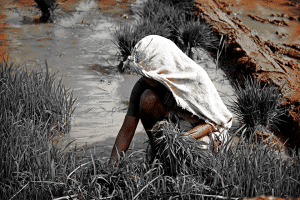Agora interviews the authors of The Business of Doing Good

Anton Simanowitz and Katherine Knotts are the authors of The Business of Doing Good, a chronicle on AMK, one of Cambodia’s leading MFIs.
The book provides 6 insights for both microfinance and other social enterprise institutions to better equip themselves to achieve both their social and financial goals.
What did you want to achieve when you first started out writing the book?
Katherine: Interestingly, our vision for the book evolved considerably over time. The first iteration was very much a thematic analysis of AMK’s experience, written I think, for a narrower microfinance audience. As we stepped back from the first draft, however, we saw the relevance of those insights emerging from AMK’s experience to a much broader range of organisations – not just microfinance institutions, but really any organisation (whether for-profit or charity) in the business of doing good.
What are your main takeaways from the book that you feel made the most impact on yourselves?
Anton: Fundamentally, AMK’s deep understanding of its clients, the purpose of the organisation, and its consistency of focus on how to build a business that reaches and serves the people.
Katherine: I echo Anton’s comments and I agree that the clarity of their purpose, “we’re going to be in business and we’re going to help people”, and their ability to maintain their vision was apparent throughout, even though the institution has changed and grown considerably over the last 10 years.
Anton: Another strong point for me was that, in many other businesses, I see a gap between theory and reality. AMK has managed to put their theories into practice.
Both: The final thing that struck us was AMK’s ability to take radical decisions. All credit to AMK for going against the grain and rejecting conventional wisdom. They are driven by their clients, they know their clients, and this has allowed them to follow through on these decisions so successfully.
During your research, did you encounter much critical feedback or conflicting comments on AMK?
Anton: By and large, most people and stories were positive. There was a challenge of longstanding clients not being able to differentiate between AMK now and AMK in the past, or fully recognise the changes in AMK’s history and development. Clients were in fact much more critical of other institutions, particularly around responses to crisis and debt collection practices. My overwhelming experience of AMK was positive.
Katherine: In our work, we’ve both heard quite negative comments about microfinance organisations in the field. The lack of such comments on AMK are notable for their absence, and that says a lot about the organization.
Where do you see AMK in 10 years?
Katherine: As independent authors, we were asked to take a historical perspective of the organisation, draw out the lessons emerging from that very rich experience. I don’t know how the Cambodian microfinance landscape will change in 10 years and I don’t think AMK does either. However, I do have faith that AMK is asking the right questions and having the right conversations so that when the landscape does shift, they’ll be very well poised to take advantage of new opportunities in a way that helps them remain faithful to their core goals.
Anton: The shift that they have gone through in the last few years by transforming themselves into a multi-product, multi-channel organisation, is the driver for the organisation going forward. They are very well positioned in providing products and services that are of great value to clients, in a way that many other organisations are not. The consistency of their approach and the DNA of the organisation have been strong up to now and that is what will make their future positive in terms of a socially focused microfinance organisation. There is always a risk that some of their social focus gets lost in the face of the challenges and complexity of commercial pursuit. But as a microfinance organisation, AMK is well structured and committed to facing those challenges.
For further information on The Business of Doing Good, please visit the website www.thebusinessofdoinggood.co.uk
Follow the authors on Twitter @antowitz and @katherineknotts.




